How long is a basketball match? Duration, match facts, and all the details
NBA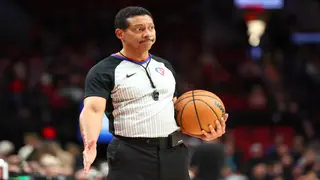
Water polo is an exciting game that combines elements of football, basketball, and hockey in an aquatic environment. It is played in a pool and requires physical fitness, skills, and tactics. How many players are there in a water polo team? Discover more here.

This sport originated around the mid-19th century in Scotland, where William is said to have invented what can be termed 'water rugby' during the 1870s. This article explores facts about the sport and the number of players in each team.
A water polo team typically consists of seven players in the water at a time (six outfield athletes and a goalie). So, how many players are there in a water polo match? A game consists of 14 players, seven from each side. Below are more details about the game, its regulations, positions, and how to play.
How long is a basketball match? Duration, match facts, and all the details
NBA
The game starts with a sprint in which athletes reach the middle while the referee releases the ball. Teams stand on their goal lines at the beginning of each period and after every score. A player can propel the ball by throwing or swimming while holding it.
Teams gain points when the ball goes between the posts and under the bar. If this happens, the non-scoring side restarts the play by passing backwards to a teammate. Competitors are forbidden from pushing the ball underwater to keep opponents from getting at it.
Physical contact is essential in the game; while playing, athletes use their bodies to gain advantage and defend against opponents. However, it is not allowed to be too aggressive, like hitting or pulling someone.
The sport's global governing body is the International Swimming Federation (FINA). Other bodies include LEN, which oversees European international competitions; the NCAA, which oversees collegiate games in the United States; the NFHS, which oversees high schools within the country; and the IOC, which governs Olympic events.
How long is a cricket match? Match duration, facts and all the details
Cricket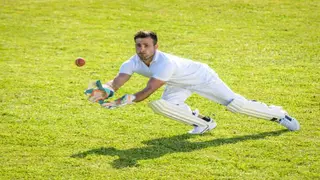

Each side has seven players in the pool, six on the field, and one goalkeeper. Water polo differs from most team sports because there are no fixed positions. Field players change their location frequently during the game according to tactical requirements.
Position | Roles |
Goalkeeper (1) | The goalkeeper is the last line of defence and wears a different coloured cap from the rest of the team. They are responsible for blocking shots and distributing the ball to teammates. |
Center Forward (2) | Also known as the "hole set," this player plays in front of the opponent's goal and is often a strong, physical player who can score goals in close range. |
Wings (2) | The wing players play on either side of the pool and are responsible for scoring goals and assisting their teammates. |
Drivers (2) | These players move around the pool, looking to create scoring opportunities by driving towards the goal and passing to teammates. |
What is softball? Rules, history, and facts of the sport
Other Sports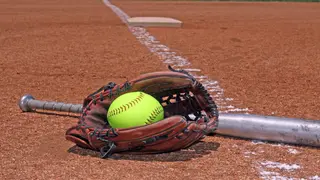
According to Swim England, a standard water polo match has four periods, each taking eight or nine minutes, with breaks between them. In lower-level matches, there are variations on these rules for overtime depending on which organization you are playing under. Some might have five-minute quarters.
If needed, there is a two-minute pause after every quarter, including those during extra periods. There is also a five-minute intermission at half-time. If two teams draw when the allocated time ends, they may play more minutes until someone scores first.
Water polo players require specific equipment to help them play the sport comfortably and effectively. The essential equipment includes:
Equipment | Function |
Ball | The water polo ball is similar in size to a soccer ball but is designed to float on the water's surface, making it easier to grip and pass. |
Caps | Players wear caps to distinguish between teams and to protect their heads from the ball and opponents' hands. |
Goggles | Some players wear goggles to protect their eyes from chlorine and impacts. |
What are the lacrosse rules and regulations? How to play the game
Other Sports
Players must be skilful and collaborative to score while defending against their rivals. Sometimes, teams find themselves a man down or man up, consequently impacting their formation.

The most standard offensive formation is the "3-3" set-up, whereby two lines are in front of the opponent's net. Professionals often employ different strategic plans, such as "arc" or "umbrella" formations, with perimeter players creating an arc around the goal and the hole at the front.
It is essential to keep pushing the ball up towards the goal. A player can throw it to a teammate or run it themselves. A pass should be used when passing to the centre forward or 'hole set'. After being fouled, the 'hole set' player can restart the game by passing to someone else. Players give away possession when they move past the 2-meter line without the ball.
What does ISO mean in basketball? The ultimate guide to understanding ISO ball
NBA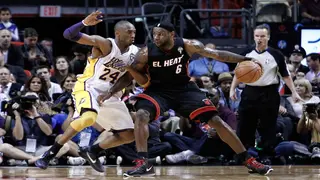
Man-up situations happen if a defender impedes someone, resulting in a 20-second suspension. The side on the attack places its participants on the 2-meter line and the 5-meter line while throwing the ball among themselves until a clear player takes a shot.
Players can work on defence to get the ball back and stop goals. The strategy helps protect the goalie's area.
The advantage rule allows play to continue if a foul would benefit the offender's team. Defensive players may intentionally commit minor fouls to move away from their attacker, forcing a free throw and allowing for a possible steal.

Water polo is a highly physical and demanding sport. Despite its challenging nature, playing it has various health advantages:
What is netball? What are the rules and regulations of the sport?
Other Sports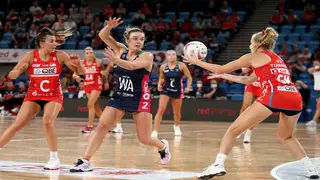
Water polo was initially played as water rugby, in which players were supposed to carry the ball to the opponent's goal. Over time, this game has changed into what we have today, with rules and strategies made in consideration of the environment.
Each team can have seven athletes in the water (six outfields and a goalkeeper).
In water polo competitions, teams play four periods, each consisting of about eight minutes of actual playing time, totalling 32 minutes (Standard Actual Play Time, SAPT).
Using an underwater move occasionally is acceptable, but using it to injure another athlete or cause unnecessary frustration is prohibited.
How many players are there in a water polo team? The sport involves seven players (six outfields and a goalie). It offers a thrilling experience for players and entertainment to fans.
Indoor sports: A list of the best indoor sports and games in the world
Other Sports
READ ALSO: Which is the most watched Olympic sport in the world currently?
Sports Brief published an article about the most watched Olympic sport in the world currently. The Olympics is the cornerstone of sport, featuring dozens of sports and the best athletes from around the globe competing for Gold, Silver, and Bronze medals. Click the above link to read more!